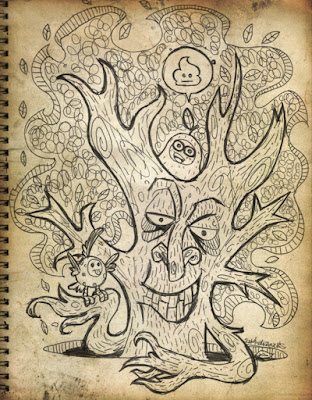Pulling readers into your story and escalating their interest requires creating, building and maintaining the right level of tension. However, sometimes as an author you might have the tendency to sabotage the tension you’ve created by giving into your character’s desires.
For example, to create tension in your story you might put your character in a precarious life and death situation that they really want to get out of fast. Instead, of building on that tension you might decide you don’t want your character to have to endure their emotional suffering too long, so you give them a fairly quick escape. When you do, you often relieve the story tension (and reader’s interest) prematurely. Building the optimal amount of tension often requires dragging your character through unbearable long-lasting tortures (physical, emotional or intellectual). Just when things seem like they couldn’t be any worse for your character, what you really need to do is find a way to make them even worse.
Of course, readers can reach a point of tension overload, which can also cause them to stop reading. So you have to be careful not to overdo their suffering and you occasionally have to relief some of the tension so readers can breathe their own sigh of relief. It in essence becomes a balancing act of creating and building tension levels to a high, sustainable point, but not too high and for not too long.
But ultimately, the point is that no matter how much you love the characters you’ve created, don’t give in too early to their pleas for help. Make them suffer a bit longer, and your readers will love you for it.
What are your thoughts on building story tension?
Image by Carl Glover
 One of the more difficult aspects of creating a compelling Dramatic Action plot for highly creative, so-called right-brained writers is to come up with concrete goals for the protagonist.
One of the more difficult aspects of creating a compelling Dramatic Action plot for highly creative, so-called right-brained writers is to come up with concrete goals for the protagonist.
I have written an article for March issue of The Writer magazine that will be out in bookstores mid-February and will not go into all the details about the importance of goals, examples of goals in literature, and how to create them -- you can read the article for more.
What I do want to cover here is the difference between the long-term protagonist goal(s) and the short-term scene goals.
This goal is different than the Goal column on the
Scene Tracker template.
The Scene Tracker Kit is designed to help writers create plot at the scene level. An essential element of scene is the protagonist's part in the scene which revolves around her goal. The scene goals are the steps she takes in hopes of reaching her long-term goal.
Both Goal elements demand a clear vision of what the protagonist desires on a concrete, attainable level. These goals much be within the protagonist's capabilities of achieving (of course you will develop all sorts of antagonists, both internal and external, to interfere with her success). However, the more well-defined the protagonist's goal at the overall story level and scene-by-scene the more grounded the reader in the story as they know what is at stake and when the protagonist is getting closer to her goal or is sent further away from her goals.
For more on Goal setting:
I received this question from Livvy a long, long time ago, and am only now answering. My apologies, Livvy. I'll get to your other questions soon......
Hi Martha,
While rereading your book for inspiration, I came across a few points that I would like some clarification on.
The Overall Story Goal; The Protagonist's Personal Goal; and the Protagonist's Dream.
So what is the difference between a Protagonist's personal goal and Dream?
The grand question is if a Dream is not attainable and goals are,
then how can the long-term story goal be more of a dream than a goal? Don't we want to have a story goal that is eventually attainable at the end of the story resulting from the character's internal & physical journey?
If we utilize a "Dream" as "THE STORY GOAL" and the only way to attain it is with a little magic, wouldn't that be more like "deus ex machina"? A writing device that cheats a reader out of a more realistic and natural occurance of events?
Would it make more sense to refer a protagonist's dream as his/her desire instead?? which can be separate from the story goal and not always attainable. So when this desire/dream is attainable, it gets attained or resolved at the resolution, since the climax is reserved for resolving the Major Story Goal.
I look foreward to hearing back from you soon and anyone else who would like to contribute to this posting, to clear this up for me.
Thanks in advance!
My answer:
Excellent analysis, Livvy! Very well put.
Yes, the character's personal goal and the overall story goal needs to be attainable by the character. The character may need help, but he or she must be the initiator of the ultimate action that creates the fulfillment of the story goal at the Climax. This is true even for children's books and young adult novels. The child or teen in the story may need the help of an adult or the police or a teacher or whomever, but the teen or child must initiate the action and/or the call for help.
Often, the story goal that begins the story changes because of the action that happens at the End of the Beginning (the first 1/4 of the page count for the book) and catapults the protagonist into the very heart of the story world -- The Middle (1/2 of the page count).
One technique to creating depth in a story is to create lots of goals throughout the story -- a romantic goal, a mystery goal, a personal goal, a political goal, a dramatic action goal, etc. Goal setting, as I have said before, is easier for Dramatic Action-driven and left-brained writers, and more difficult for Character-driven and right-brained writers. Goals ground the story and allow the reader or movie-goer to know what is at stake for the character and thus root for their success, mourn for their failure.
I recently finished Cara Black's, Murder in Montmartre. In this mystery, Aimee's overall story goal is to prove her friend did not kill her partner and thus absolve her of the crime. Aimee also has a personal goal and that is to solve a mystery about her father. Both of these goals help keep her at the task at hand even when the stakes are at their highest and the most dangerous.
Dreams or desires add yet another layer. Since dreams generally rely on the help of others or a bit of magic, they can create an added twist at the end of the story. For instance, most writers I work with have the specific goal of finishing their WIP (work-in-progress). Beyond that, most first-time writers dream of securing an agent. Published writers with an agent often dream of one of the following: to win the Pulitzer Prize, appear on Oprah, and/or be listed on the New York Times best seller list.
These writers' dreams are usually beyond the writer's direct control. The writer writes the very best product they are capable of writing. They send out queries. But, as in creating any deep connection, the agent figures into the equation. If they have just signed on a new writer, chances are they won't sign on another new writer right away. If they have a stack of manuscripts a mile-high waiting on their desks, they look for excuses to reject. If they have a full list of writers, they may not be willing to add yet another. And so on.......
At the beginning of Black's murder mystery, she shows Aimee's boyfriend breaking up with her. Throughout the story we feel Aimee's loneliness and how much she misses her beau and longs for love. Thus, when she unexpectedly finds a man who excites her passion, the story takes on added depth and excitement. By Aimee finding love and achieving her dream, an added element is created = the reader is excited about the next book in the series coming out in order to learn if the two lovers last as a couple, or not.
What is your character's story goal? What is her dream? How they work together or against each other in the story overall???

Here is another sketch i have just finish...and thanks for all your comments, it is good to be back on track on SFG!...
Read the rest of this post






Great post! I think may be the single most helpful post I've read since starting to blog last month.
Thank you for all of the wonderful information. I will be ordering your Tool kit, can't wait for it!!! Also can't wait for The Writer magazine to come out.
Micole Black